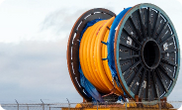Electrical Fires: Handling Tips and Steps for Precautions
Reasons for Electrical Fires
Electrical fires in private homes and offices often occur because of faulty appliances, light fixtures, extension cords, space heaters, and wiring.
According to the report published by NFPA, local fire departments responded to 78030 electrical fires in homes. About 58 percent of these fires were attributed to electrical failure or malfunction, while the remaining 42 percent were a result of issues with electrical distribution and lighting equipment. Reasons for electrical fires include electrical distribution, lighting, and power transfer malfunctioning, as well as faults in cooking and heating equipment. Most electrical failures that caused the fire remain unclassified after the investigation. Fires that are caused by electrical distribution most often involve wiring. Between 2012 and 2016, electrical fires resulted in the deaths of 440 civilians and caused $1.3 billion damage. The most dangerous fires that cause the most deaths occur at night because people are often caught by surprise while asleep and cannot do anything to prevent such an outcome.
First Emergency Steps to Stop An Electrical Fire
Unplug the Device That Provoked The Fire
If you can discover the device where the fire has been generated, unplug it immediately. Switch off the electrical panel as well if you are able to reach it safely. Unplugging the device will block the fire from spreading and will prevent electrocuting.
Never Use Water Unless You Are Absolutely Sure That The Electricity Is Off!
Water conducts the electricity, so it may cause the fire to expand further and cause other flammable materials to catch fire. Using water also increases the risk of electrical injury and electrocution.
Stop The Small Fire With Baking Soda
If the fire occurred in a small appliance, such as a toaster or food processor, you could smother it by covering the device with sodium-bicarbonate, or in simple words, some baking soda. It will cut the oxygen from the fire source.
Use a C Or an ABC Fire Extinguisher, or a Fire Blanket To Smother The Fire
A C fire extinguisher is meant to stop electrical fires, but most residential buildings carry a multipurpose ABC extinguisher that are also acceptable. It is critical not to use other types of extinguishers as they can create an electrocution hazard. To use your extinguisher, pull a safety pill, aim the extinguisher on a fire, touch the handle, and move the stream from right to left, covering the entire fire area. If you do not possess an extinguisher, you can cover the fire area with a fire blanket to remove the oxygen source. Any thick blanket can do instead of a fire blanket. However, you should use the blanket only if the power is off. Otherwise, it can escalate the situation by catching on fire. You can now use water as long the electrical panel in the house is switched off.
Call The Fire Department
Call 911 immediately after you discover an electrical fire in your house or office. Even if you can localize the fire, you cannot be too careful, and alerting the professionals can save your life. If several people in your house, split and have someone call the emergency services while another person tends to the electrical fire. Before stopping the fire, make sure that you have several escape routes if your attempts to stop the fire are unsuccessful.
If you cannot stop the fire, escape the house immediately and close the door to prevent the fire from spreading outside while you wait for emergency services!
How To Avoid Electrical Fire
While it is often possible to stop the electrical fire from spreading, prevention is better than the cure in this case. Avoiding an electrical fire will save you from stress, protect your money, and possibly even life. Here are six necessary steps that will teach you how to avoid an electrical fire in your home or office.
1. Invite a Professional to Make Sure Your Electrical Network Fits The Standards and Update Your House Wiring
The networks in some houses, especially the older ones, do not fit the National Electrical Code's safety requirements. Invite the electrician to inspect circuit breakers, loose wires, and the capacity of the electrical network.
The professional can also recommend an arc-fault circuit interrupter that can prevent more than half of electrical fires. AFCI is most effective when placed in every room of the house. Installing a safety switcher on every circuit might also be a good option for you. Surge protectors can also help to prevent an electrical wire.
The wiring in your house can also be inspected for signs of wearing off, fraying, and damaging. If you find an old or faulty wire, invest in buying new and safe ones. If your house is over ten years old, it is a good idea to schedule a check ASAP.
2. Do Not Use Extension Cords For Long
Extension cords are meant for temporary use only, and overusing them is a common cause of an electrical fire. Extension cords must never be used with any heating equipment. Unfortunately, people are often tempted to use them regularly. When you briefly use extension cords, make sure that they have a safety closure. If you notice that extension cords are overused, contact an electrician, and invest in new permanent power sources.
3. Never Overload The Electrical Outlets
A circuit can only provide a particular amount of electricity to each appliance at the time. If the circuit is overloaded, it can get overheated, resulting in an electrical fire. You can calculate how many amps you use on a particular branch if you know the circuit's amp rating. To do so, divide the sum of the watts used by each device by the voltage. If you expect your outlets to be overloaded, invest in additional branch circuits.
4. Use Your Devices In A Safe Way
Avoiding common hazards of device use can get you a long way. Always follow instructions when interacting with your electrical appliances. Also, unplug the devices that you do not currently use to prevent them from overheating and overloading the outlet. The light bulbs that you use need to fit the suggested wattage of the lamp. Last but not least, get the devices with damaged power cords or plugs repaired before using them.
5. Pay Attention to the Signs Of Danger
Never ignore the signs that might directly warn you of a potential fire. Those may include flickering lights, unusually hot appliances, wires, and light switches, a burning smell when devices are plugged in, electrical sparks, slight electrical shock when touching the device, discolored plugs and outlets, tripping circuit breakers, and buzzing sounds that are coming from anything in your electrical system. Contact the electrician immediately after experiencing any of these signs and stop using devices, cords, or lighting fixtures that cause these problems.
6. Use High-Quality Electrical Cables
For the most part, using safe, reliable wires, and updating them every decade is itself an effective measure against electrical fires. However, using cables with flame-retardant insulation will help you even more. Common standards that determine the cable's ability not to spread fire include IEC Flame Retardant Grade and UL 94. Many industrial cables have flame-retardant insulations; however, some frequently used cables in homes and offices also prevent the fire from spreading. These include some of the most popular residential cables, such as THHN THWN-2 Copper Building Wire and an Underground Feeder UF-B Cable. Visit our website to learn more about these products.



















